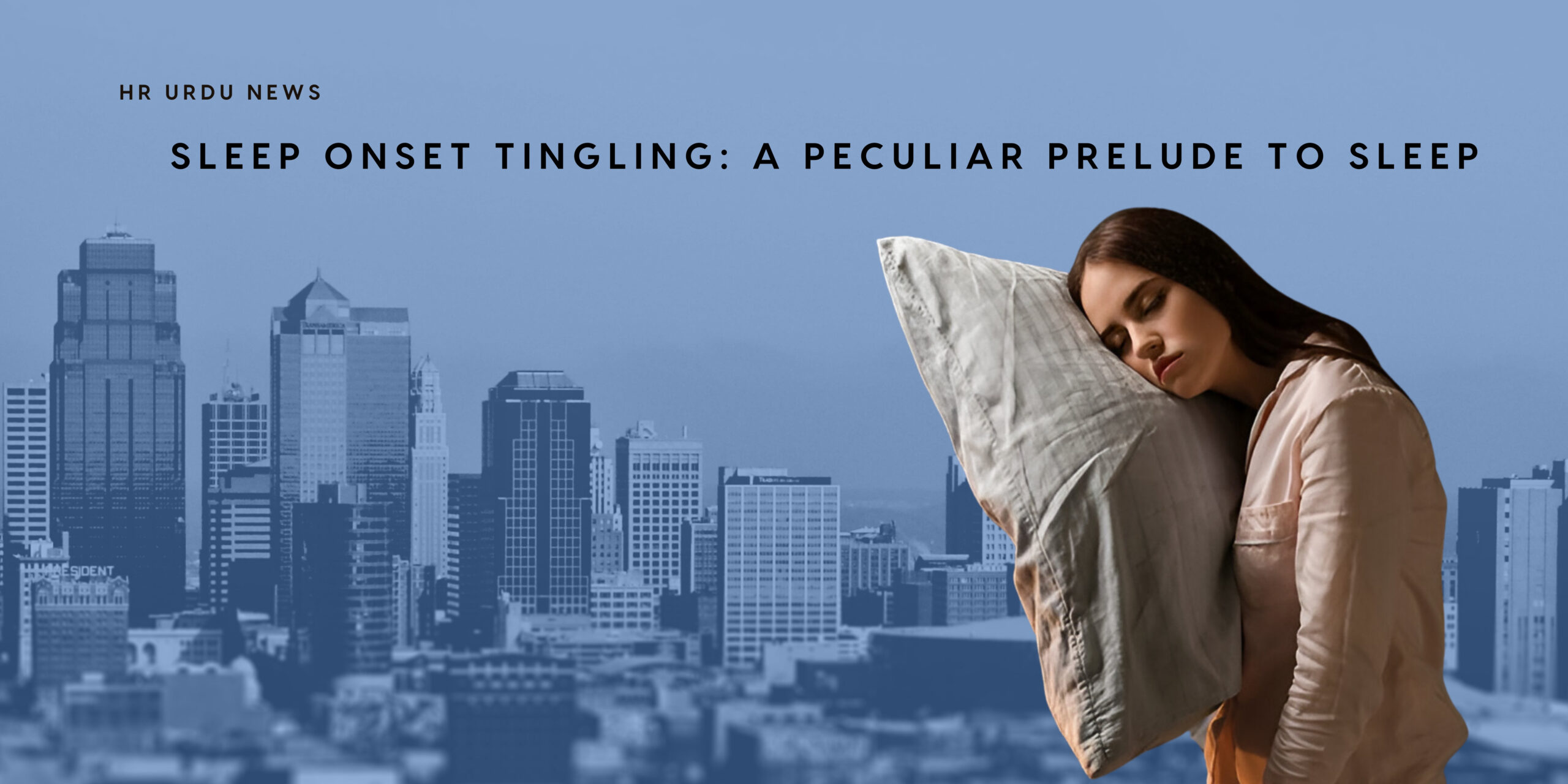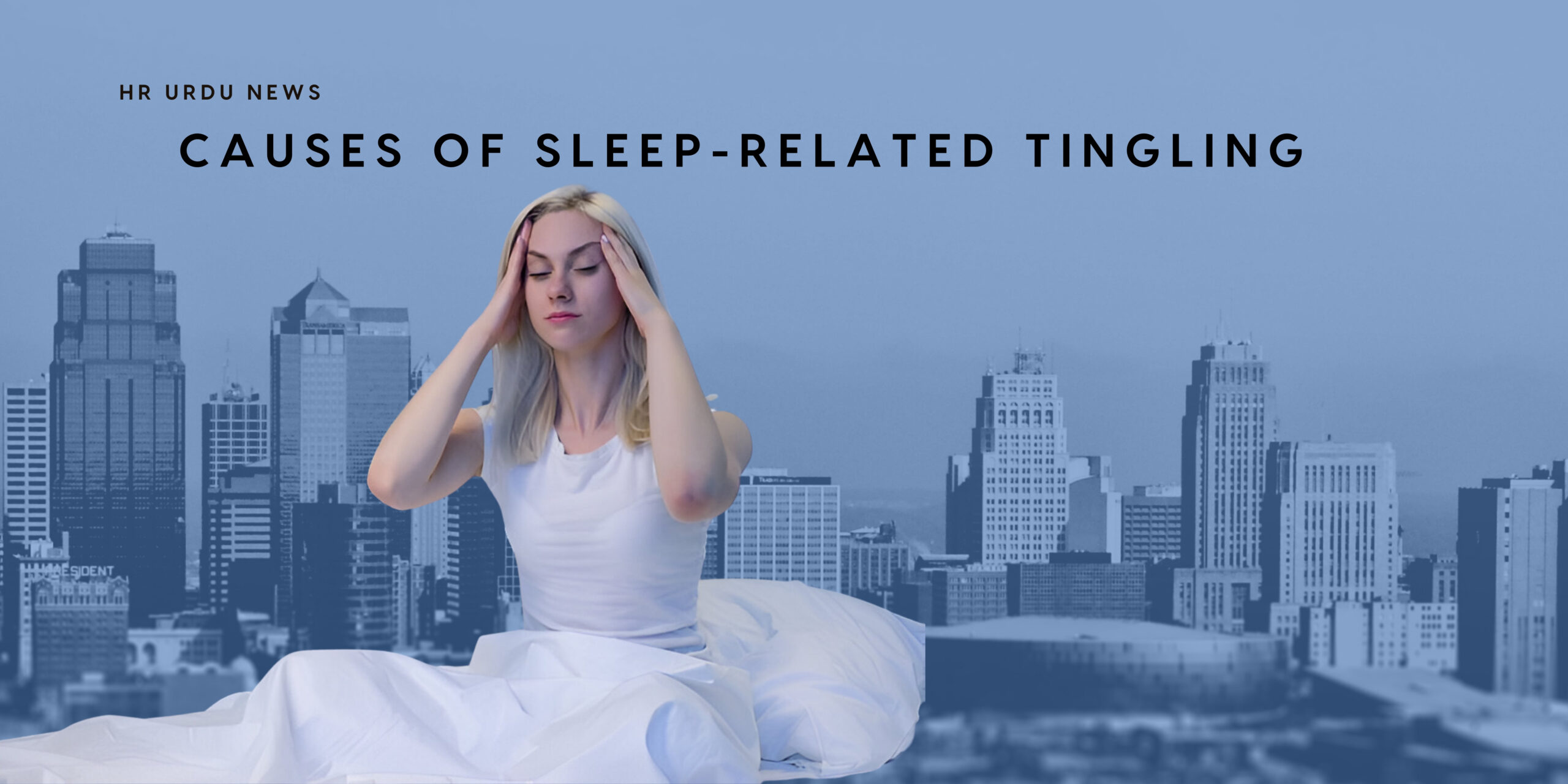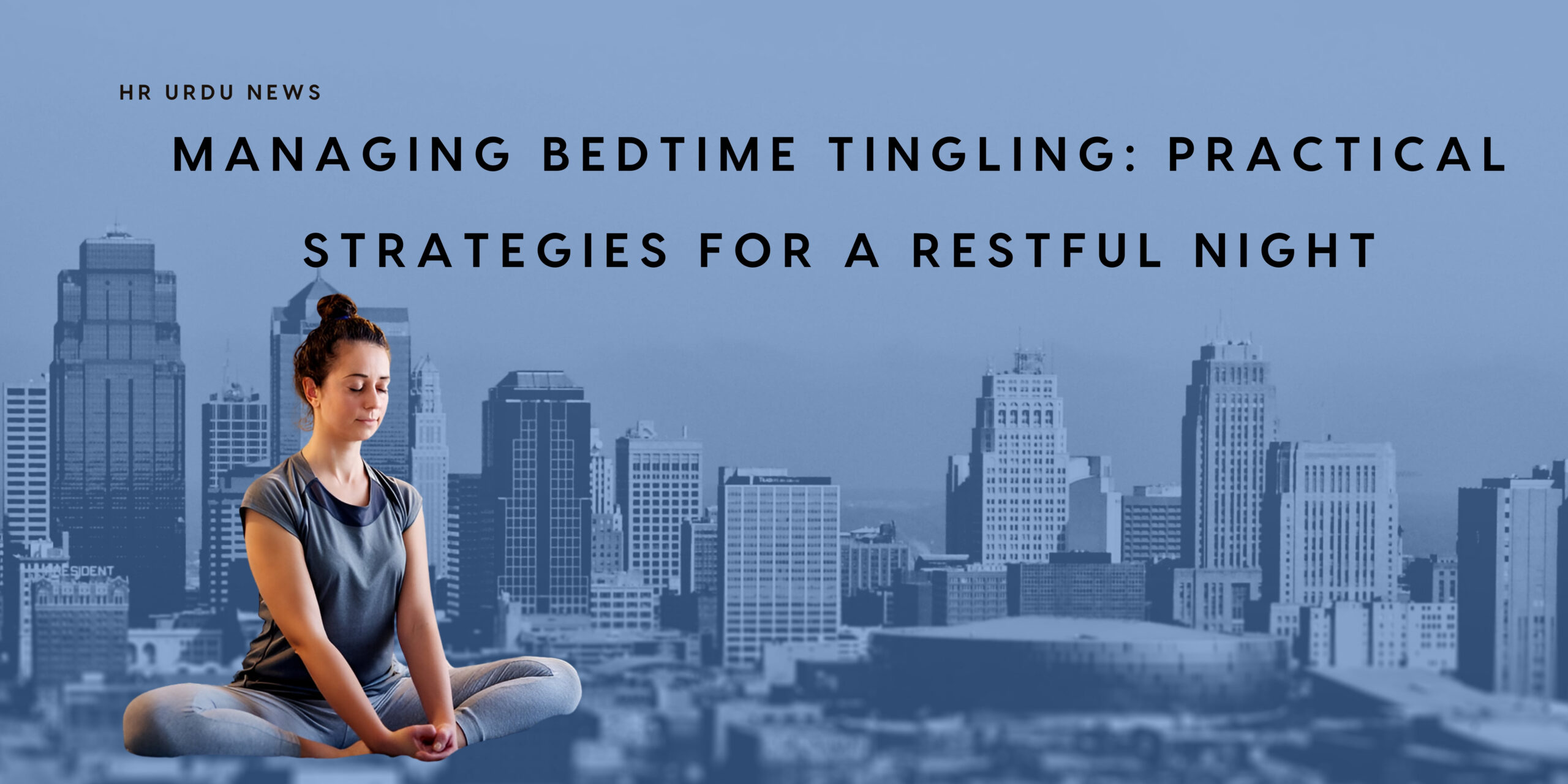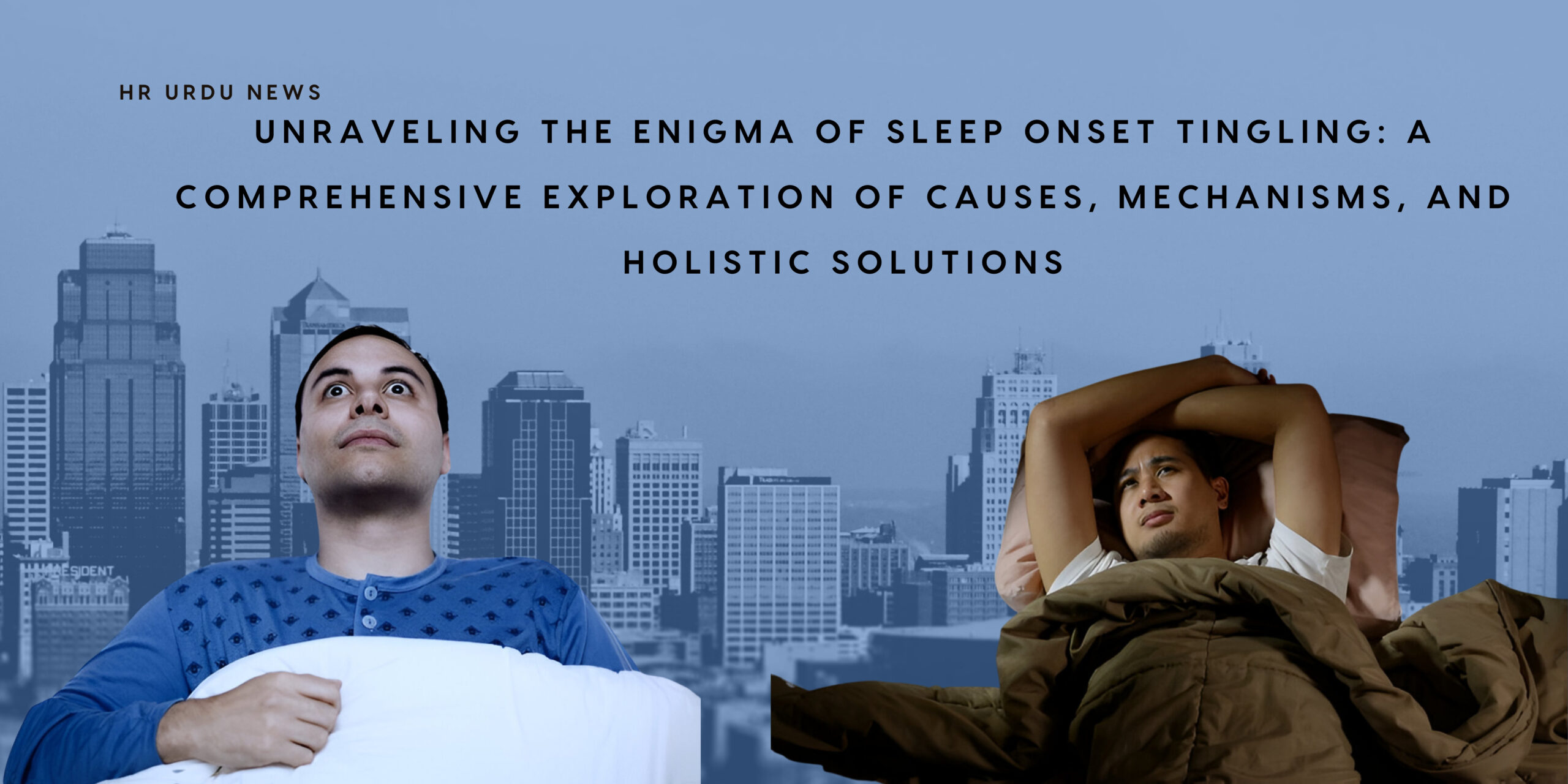Introduction
Embarking on the journey of sleep is often accompanied by a myriad of sensations, one of the most intriguing being the tingling that pervades the body just before slumber. Referred to as “sleep onset tingling,” this phenomenon has captured the curiosity of many. In this in-depth exploration, we aim to delve into the multifaceted nature of this unique sensation, examining its underlying causes, the intricate mechanisms at play, and offering holistic solutions for those who encounter it regularly.
Sleep Onset Tingling: A Peculiar Prelude to Sleep

Before delving into the complexities of sleep onset tingling, let’s establish a common understanding of the phenomenon. It manifests as a tingling sensation that typically originates in the extremities, such as the hands and feet, and gradually extends throughout the body. The intensity and duration of this sensation can vary widely, ranging from subtle and fleeting to more pronounced and lingering.
Causes of Sleep-Related Tingling

The tingling sensation before sleep is a result of a combination of factors, with stress and tension release being a prominent explanation. As the body transitions from wakefulness to the initial stages of sleep, stress accumulated throughout the day is discharged, manifesting as tingling—a phenomenon akin to the muscle twitches or jerks commonly observed during this transition.
Another contributing factor is the activation of the parasympathetic nervous system. Responsible for inducing relaxation and promoting rest, this system can trigger various sensations, including tingling, as it readies the body for the restorative process of sleep.
In certain cases, sleep-related tingling may be associated with parasthesia, a neurological disorder characterized by abnormal sensations, such as tingling or numbness. Although parasthesia can occur at any time, it is more likely to be noticed during periods of relaxation, such as the moments leading up to sleep.
The Intricate Mechanisms at Play
To comprehend sleep onset tingling fully, it is essential to delve into the intricate mechanisms that unfold during the transition from wakefulness to sleep. As the body undergoes a series of physiological changes, including a slowing of brain activity and a decrease in muscle tone, the tingling sensation often becomes apparent.
One hypothesis suggests that as muscles relax, nerve pathways become more susceptible to stimuli, leading to the tingling sensation. Additionally, the release of neurotransmitters and the modulation of neural pathways may play a role in the manifestation of this phenomenon.
Managing Bedtime Tingling: Practical Strategies for a Restful Night

For individuals who regularly experience bedtime tingling, a range of practical strategies can be employed to manage and alleviate the sensation:
- Relaxation Techniques: Engaging in relaxation exercises, such as deep breathing, guided imagery, or progressive muscle relaxation, can significantly reduce stress and tension in the body, potentially alleviating the tingling sensation.
- Sleep Environment: Creating an optimal sleep environment is paramount. Ensure your bedroom is cool, dark, and free from distractions to promote relaxation and reduce the likelihood of bedtime tingling.
- Healthy Sleep Habits: Maintaining a consistent sleep schedule, avoiding stimulants like caffeine before bedtime, and practicing good sleep hygiene contribute to better overall sleep quality and may reduce the occurrence of tingling sensations.
- Nutritional Considerations: Some studies suggest that certain nutritional factors may influence sleep quality. Ensuring an adequate intake of magnesium, for example, may positively impact muscle relaxation and potentially reduce bedtime tingling.
- Medical Evaluation: If bedtime tingling persists or is accompanied by other concerning symptoms, seeking advice from a healthcare professional is advisable. A thorough examination can help determine if an underlying medical condition is contributing to the tingling.
A Holistic Approach to Sleep Health
Understanding sleep onset tingling is not only about unraveling its mysteries but also about adopting a holistic approach to sleep health. Incorporating mindfulness practices, such as meditation and yoga, into your routine can contribute to overall relaxation and potentially alleviate bedtime tingling.
Furthermore, considering the role of stress and its impact on sleep is crucial. Chronic stress can disrupt the body’s natural sleep-wake cycle and exacerbate sensations like tingling. Implementing stress management techniques, such as regular exercise and mindfulness, can positively influence sleep quality.
The Lengthy Expedition into Sleep Onset Tingling
In extending our exploration, it is essential to recognize that the tingling sensation before sleep is not a mere curiosity but rather a doorway to understanding the intricate interplay between the body and sleep. A more profound understanding invites us to navigate the extensive terrain of sleep onset tingling, acknowledging its place in our nightly journey into rest and rejuvenation.
Conclusion
In conclusion, the tingling sensation experienced just before falling asleep is a fascinating and commonly reported phenomenon. While the specific cause may vary among individuals, it is generally considered a normal part of the body’s natural relaxation process and stress release. However, if the tingling becomes persistent or is accompanied by other worrisome symptoms, seeking medical advice is crucial.
By unraveling the mechanisms at play, adopting practical strategies to manage bedtime tingling, and embracing a holistic approach to sleep health, individuals can minimize the impact of this phenomenon on their sleep quality and overall well-being. Sleep onset tingling is not merely a curious occurrence; it provides valuable insights into the intricate interplay between the body and sleep, inviting us to explore the depths of our nightly journey into rest and rejuvenation on a more extensive and intricate scale.
Disclaimer
The content shared in this article is designed for educational and informational purposes exclusively. It does not intend to replace professional medical advice, diagnosis, or treatment. It is paramount to seek the counsel of your physician or another qualified healthcare provider for any inquiries related to a medical condition.
Approach the utilization of acupressure, deep breathing exercises, and natural remedies with a discerning mindset, as these techniques may not be universally suitable. Responses to these methods can be individualized, necessitating careful consideration of personal health conditions, allergies, and any ongoing medical treatments.
While acupressure is acknowledged for its potential benefits, it should not be perceived as a guaranteed cure, and its efficacy may exhibit variations among individuals. Prior consultation with a qualified healthcare professional is advisable before embarking on acupressure or any self-help techniques, particularly if you are pregnant, nursing, have pre-existing medical conditions, or are under medication.
The author and publisher hereby disclaim any responsibility for adverse effects or consequences arising from the utilization of the information provided. Relying on any information in this article is done solely at your own risk.
For tailored medical advice and guidance based on your individual needs and circumstances, it is imperative to consult with a qualified healthcare professional.


I just could not leave your web site prior to suggesting that I actually enjoyed the usual information an individual provide on your guests?
Is going to be back incessantly in order to inspect new posts
Thank You Brother
Thanks for the good writeup. It in reality was once a amusement account it.
Look complicated to more added agreeable from you! By the way, how could we communicate?
Thank You Brother
Fantastic website. A lot of useful info here.
I am sending it to some pals ans additionally sharing in delicious.
And obviously, thank you in your effort!
Thank You Brother
You made some decent points there. I checked on the internet to learn more about the issue and found most individuals will go along
with your views on this site.
Hi I am so grateful I found your website, I really found you by mistake, while I was
researching on Google for something else, Anyways I am here now and would just
like to say thank you for a marvelous post and a all round entertaining blog (I also love the theme/design), I don’t have time to read it all
at the minute but I have bookmarked it and also added your RSS
feeds, so when I have time I will be back to
read a great deal more, Please do keep up the awesome b.
thank you my friend for your support
I want to thank you for your assistance and this post. It’s been great.